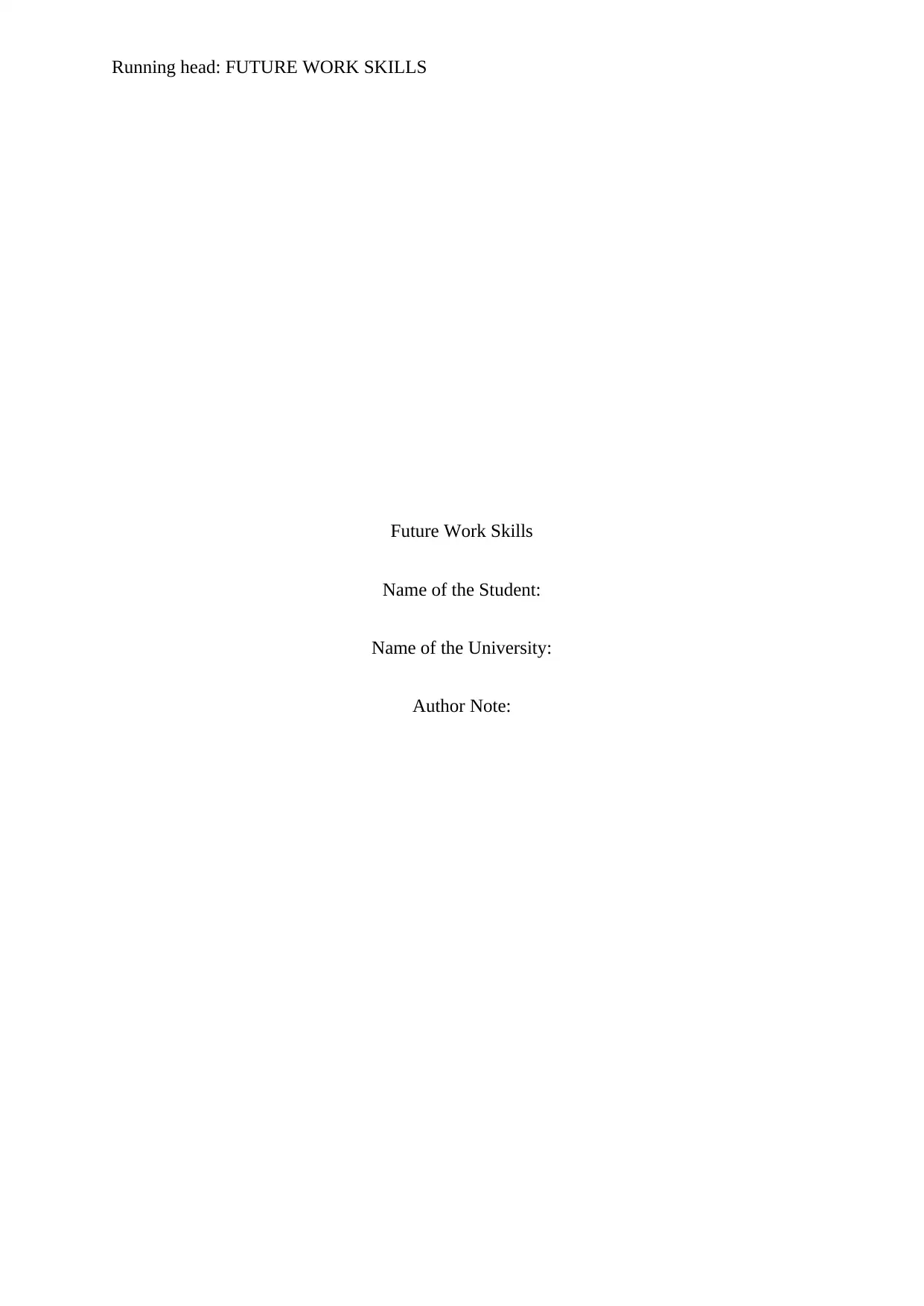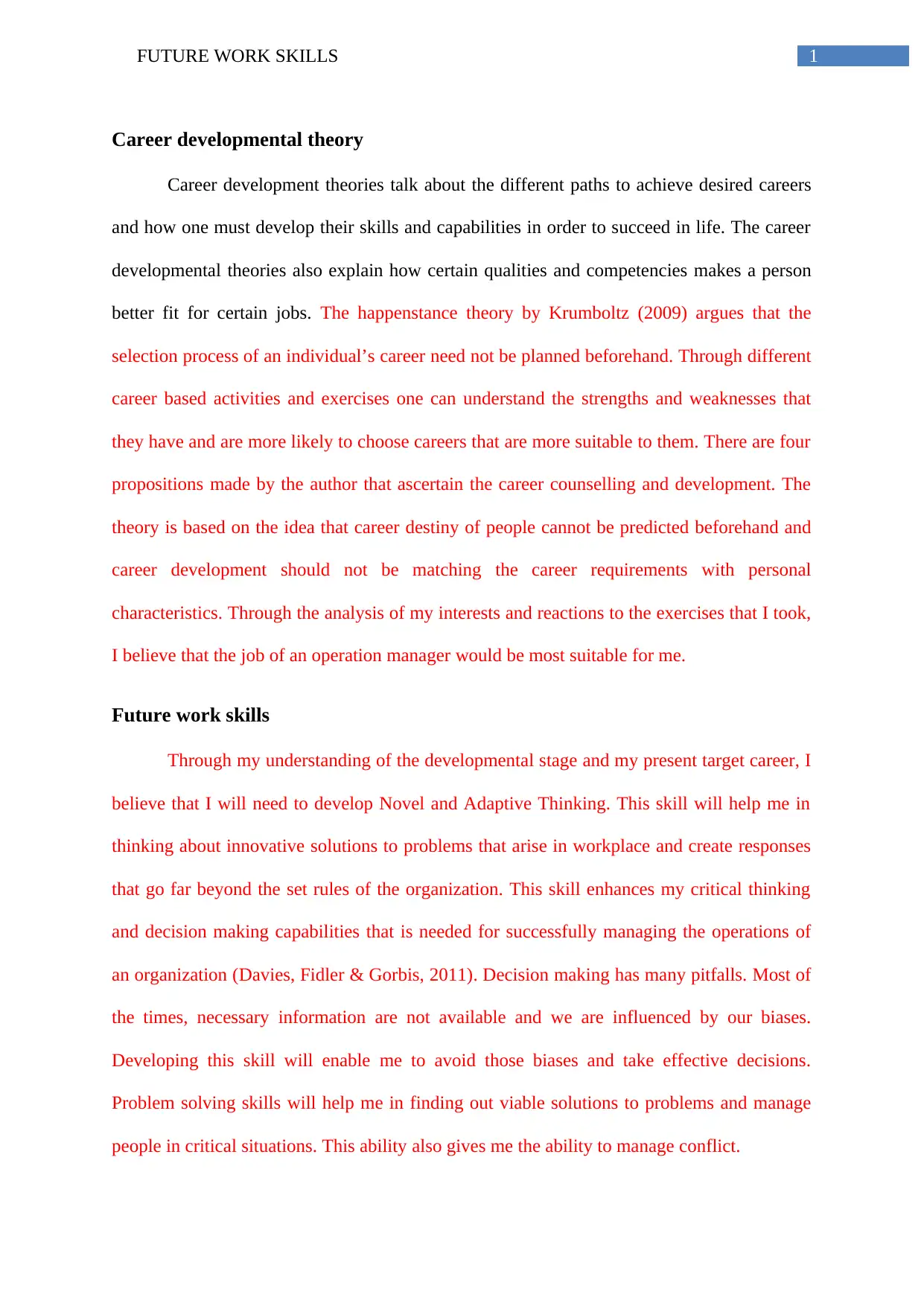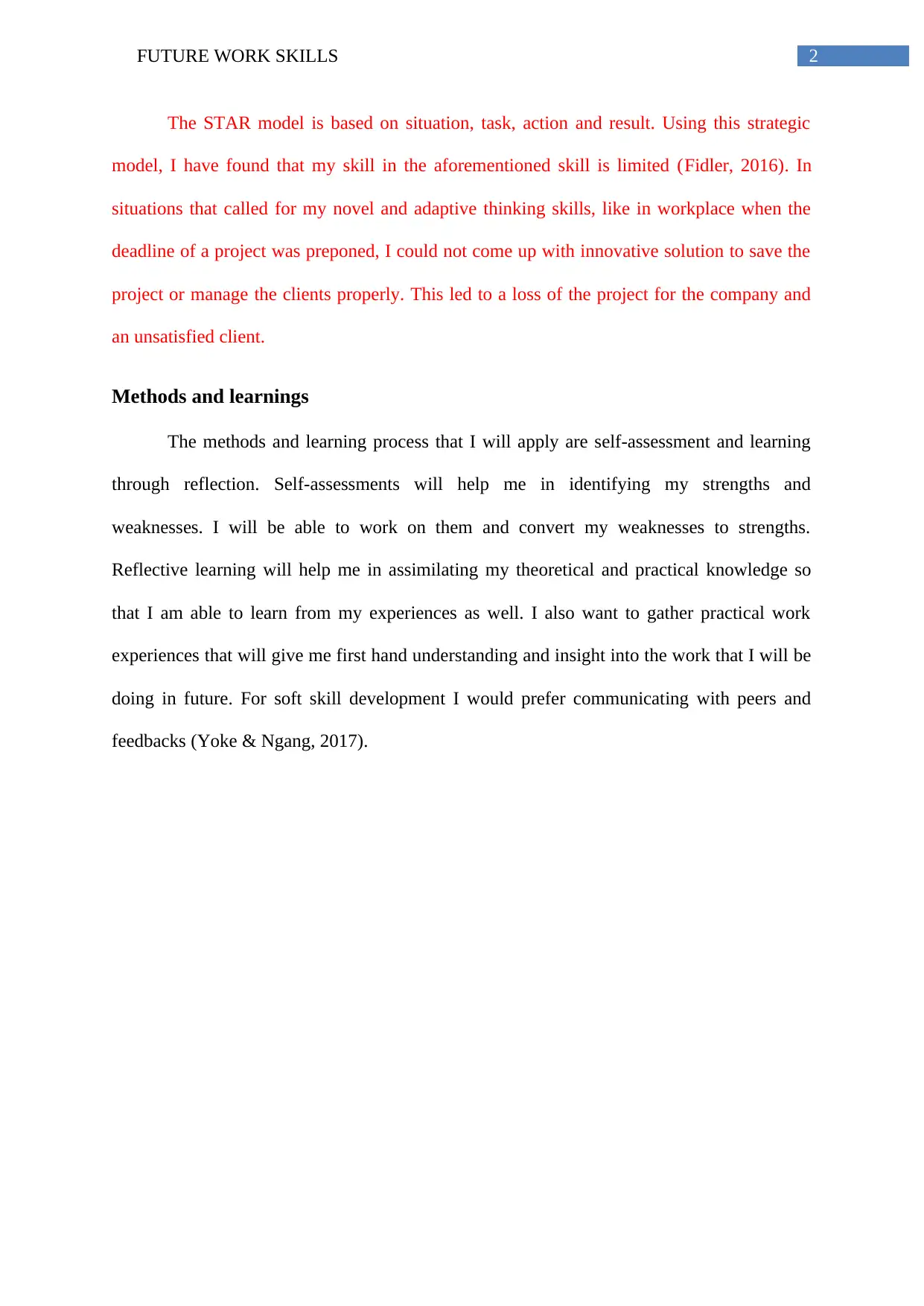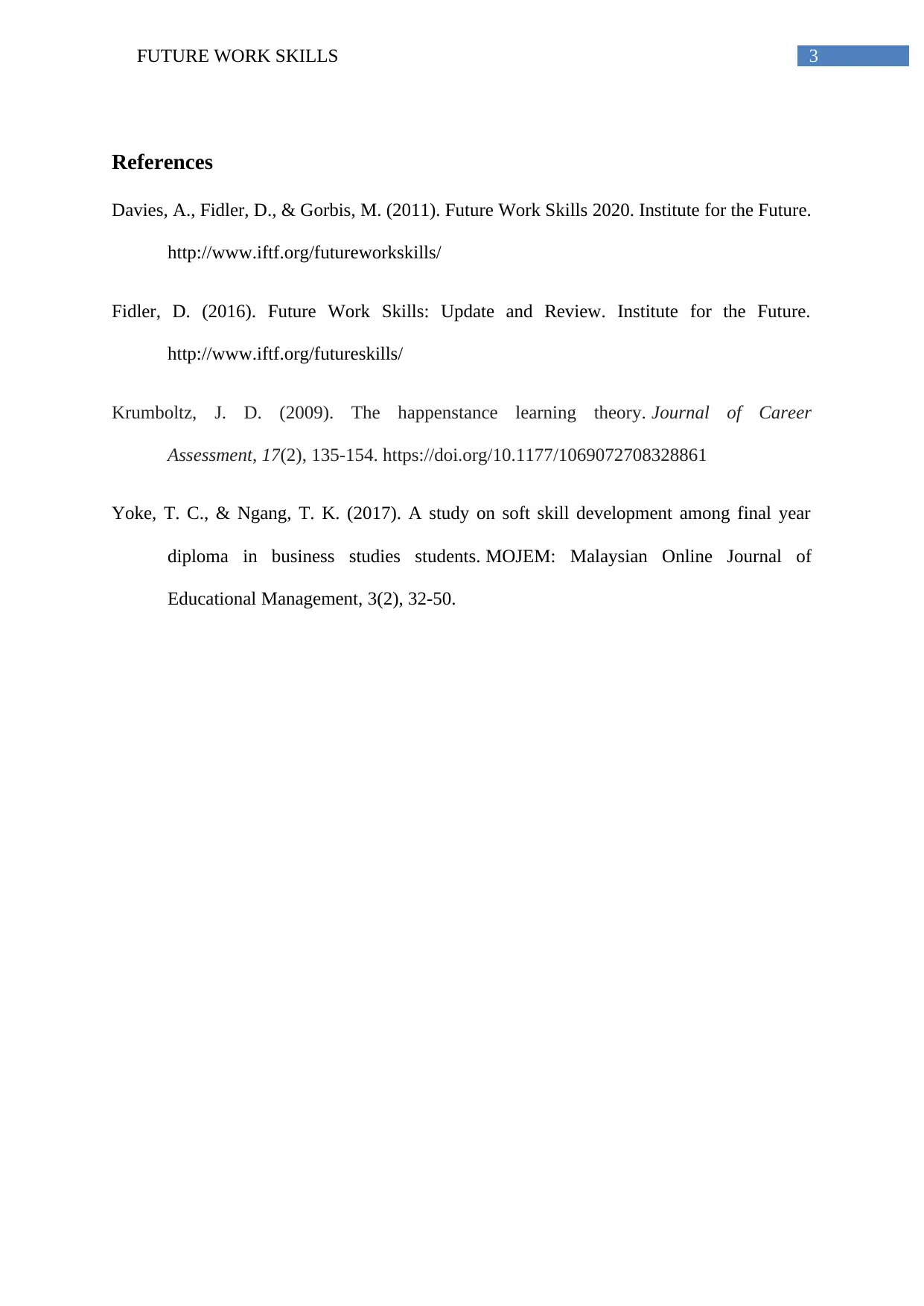CAR20001: Future Work Skills Report - Swinburne University
VerifiedAdded on 2022/08/28
|4
|711
|12
Report
AI Summary
This report, submitted by a student, explores future work skills within the context of career development. It begins by applying the happenstance theory to the student's career interests, identifying the role of self-assessment in understanding strengths and weaknesses. The report then focuses on the importance of "Novel and Adaptive Thinking" as a crucial future work skill for an operation manager, emphasizing the ability to develop innovative solutions and make effective decisions. The student reflects on their skill level using the STAR model and describes the methods and learning processes, including self-assessment and reflective learning, that will be used to improve these skills. References to relevant academic sources are included to support the analysis.
1 out of 4











![[object Object]](/_next/static/media/star-bottom.7253800d.svg)